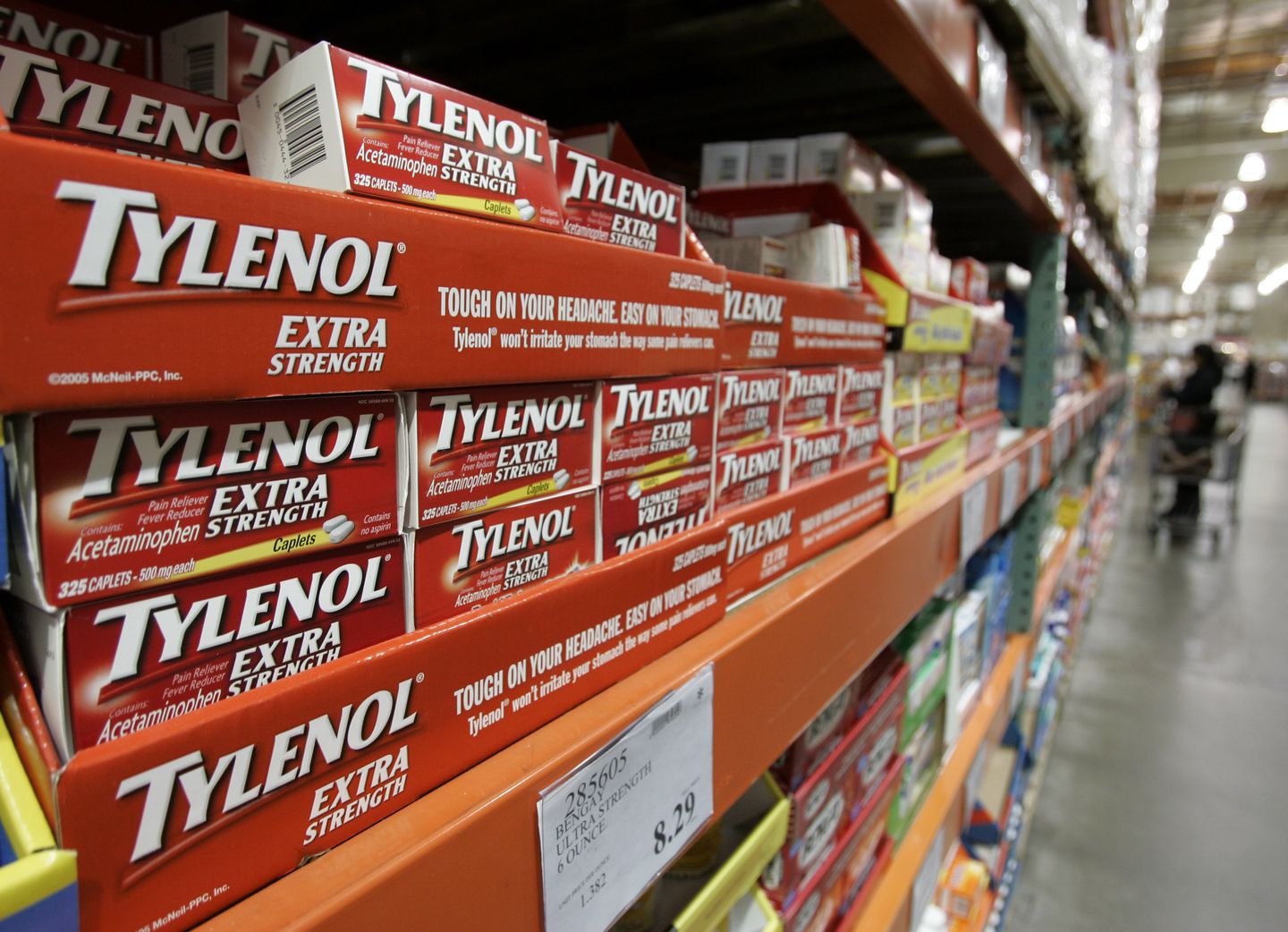
President Trump on Monday linked autism to the use of the painkiller acetaminophen during pregnancy, stirring debate and confusion about a key ingredient in Tylenol that had been considered safe for expectant mothers to use against dangerous fevers.
Mr. Trump said pregnant women should not take Tylenol unless they have an extreme fever or they cannot “tough it out” when they are in pain.
“So taking Tylenol is — not good. I’ll say it, it’s not good,” Mr. Trump said at the White House.
Mr. Trump also said a type of vitamin B, known as leucovorin, could be an effective treatment for autism, a neurodevelopmental disorder marked by difficulty with social skills, repetitive behaviors, and speech or nonverbal communication.
The administration’s findings follow a monthslong review by Health and Human Services Secretary Robert F. Kennedy Jr., a polarizing Cabinet member who pledged to fight Big Pharma and pursue gold-standard science but has been criticized for being quick to espouse conspiracy theories.
The announcement sparked a backlash from medical groups who said it was based on flimsy evidence and ignored likely causes such as genetics passed down from parents.
They said rates of Tylenol use among pregnant women haven’t risen in recent decades, even as rates of autism have soared.
Previously, the FDA had not found a link between acetaminophen and autism.
“To date, FDA has not found clear evidence that appropriate use of acetaminophen during pregnancy causes adverse pregnancy, birth, neurobehavioral or developmental outcomes,” the FDA says on its website. “However, FDA continues to recommend consultation with a health care professional before use of any medicine, including said acetaminophen, during pregnancy.”
Autism affects an estimated 1 in 31 children and 1 in 45 adults in the U.S.
Concerns have been growing about rates of autism, alongside increasing awareness of the disorder.
Mr. Trump said rates of autism were about 1 in 10,000 only a couple of decades ago.
“Horrible, horrible crisis,” Mr. Trump said.
Mr. Kennedy promised Mr. Trump he would get to the bottom of what was causing rising rates of autism and report his findings by September.
He said clinical and laboratory studies found a potential link between acetaminophen and later diagnoses of autism and attention-deficit/hyperactivity disorder, so the FDA will develop a safety-label change for the painkiller and launch a public awareness campaign.
He said the safety of acetaminophen against the risk of neurodevelopmental conditions in children has “never been validated,” so caution is needed.
Mr. Kennedy suggested he wasn’t finished, raising the possibility that his health officials might tie vaccines to autism.
Kenvue Brands, the maker of Tylenol, rejected the new medical advice from the administration.
“We believe independent, sound science clearly shows that taking acetaminophen does not cause autism,” Kenvue said in a statement. “We strongly disagree with any suggestion otherwise and are deeply concerned with the health risk this poses for expecting mothers.”
The company and outside medical groups said acetaminophen is an important option for pregnant women to treat fevers that could lead to miscarriage or birth defects.
Dr. Steven Fleischman, president of the American College of Obstetricians and Gynecologists, described the conclusion as “reckless” and likely based on poorly designed studies.
“We are not changing our guidance as of now. And really, there’s no new data,” he told CNN.
Dr. Fleischman said HHS seemed to be relying on a meta-analysis, or “sort of a combination of many, many studies over many, many periods of time.”
“Those studies sometimes include studies we wouldn’t agree with,” he said.
Smaller studies have found some signs of a link between autism and acetaminophen.
A 2019 study linked “cord plasma biomarkers of fetal exposure to acetaminophen” to the disorder.
FDA Commissioner Marty Makary pointed to studies from the Boston Birth Cohort and prestigious universities that found a consistent pattern of acetaminophen use and a pattern of autism.
“Sure, you’ll be able to find a study to the contrary. That’s how science works,” he said.
A massive 2024 study between the National Institutes of Health and Swedish researchers did not find an increased risk of autism from acetaminophen, and a U.S. District Court reached a similar conclusion in a product liability case.
Mr. Trump, meanwhile, said that only good things could happen by avoiding Tylenol.
“Don’t take it, don’t take it,” he said. “There’s no downside in not taking it.”
Others said the president was putting pregnant women in a terrible position.
Mia Ives-Rublee, senior director for the Disability Justice Initiative at the Center for American Progress, said the guidance “will likely lead to blaming parents if their children are diagnosed with autism and discouraging the safe use of medication to appropriately manage pain and fever during pregnancy.”
The recommendation of leucovorin, which is used in cancer treatment, seemed to cause less controversy.
Small studies showed a small improvement in verbal skills among people with autism who took leucovorin, so it is “certainly worthy of further exploration,” former Food and Drug Commissioner Scott Gottlieb told CNBC.
“I think it’s going to take larger, randomized trials to really prove out whether there is a correlation between the drug and an improvement,” he said.
Mr. Trump vowed to let Mr. Kennedy “go wild on health” after the Democratic scion dropped out of the 2024 presidential race and supported Mr. Trump.
During his confirmation process, Mr. Kennedy pledged to get to the bottom of the increase in autism. He encountered criticism, however, for raising the unsubstantiated belief that vaccines might cause the disorder.
Mr. Trump riffed on vaccines during his White House event, saying babies should receive immunizations over a period of time instead of getting multiple vaccines at once.
He said there is “no downside” in taking the measles, mumps, and rubella vaccines separately, though scientists say it is more efficient and reduces the pain of multiple injections.
“This is based on what I feel,” Mr. Trump said.
Mr. Trump and Mr. Kennedy teased the announcement at a Cabinet meeting in August.
“We’re finding interventions, certain interventions now that are clearly, almost certainly causing autism,” Mr. Kennedy said. “And we’re going to be able to address those in September.”
Mr. Trump said there “has to be something artificially causing this, meaning a drug or something.”
More recently, he said the announcement would be “one of the most important things that we will do.”
Mr. Kennedy’s Make America Healthy Again movement has generated legions of fans and critics alike.
Linking autism with a drug reflects Mr. Kennedy’s influence within Mr. Trump’s orbit.
The secretary won broad kudos for examining diet and what goes into Americans’ food, but his work on autism and pharmaceuticals has been controversial.
He fired the director of the Centers for Disease Control and Prevention, Susan Monarez, over the summer as they clashed over an outside panel that advises the CDC on vaccine policy.
The panel recently watered down its COVID-19 vaccine recommendation. Members said people should consult their doctors about whether to get the vaccine, replacing its longtime recommendation that everyone 6 months and older get a seasonal shot.
• Kerry Picket contributed to this report.





![Gavin Newsom Threatens to 'Punch These Sons of B*thces in the Mouth' [WATCH]](https://www.right2024.com/wp-content/uploads/2025/08/Gavin-Newsom-Threatens-to-Punch-These-Sons-of-Bthces-in-350x250.jpg)
![ICE Arrests Illegal Alien Influencer During Her Livestream in Los Angeles: ‘You Bet We Did’ [WATCH]](https://www.right2024.com/wp-content/uploads/2025/08/ICE-Arrests-Illegal-Alien-Influencer-During-Her-Livestream-in-Los-350x250.jpg)








